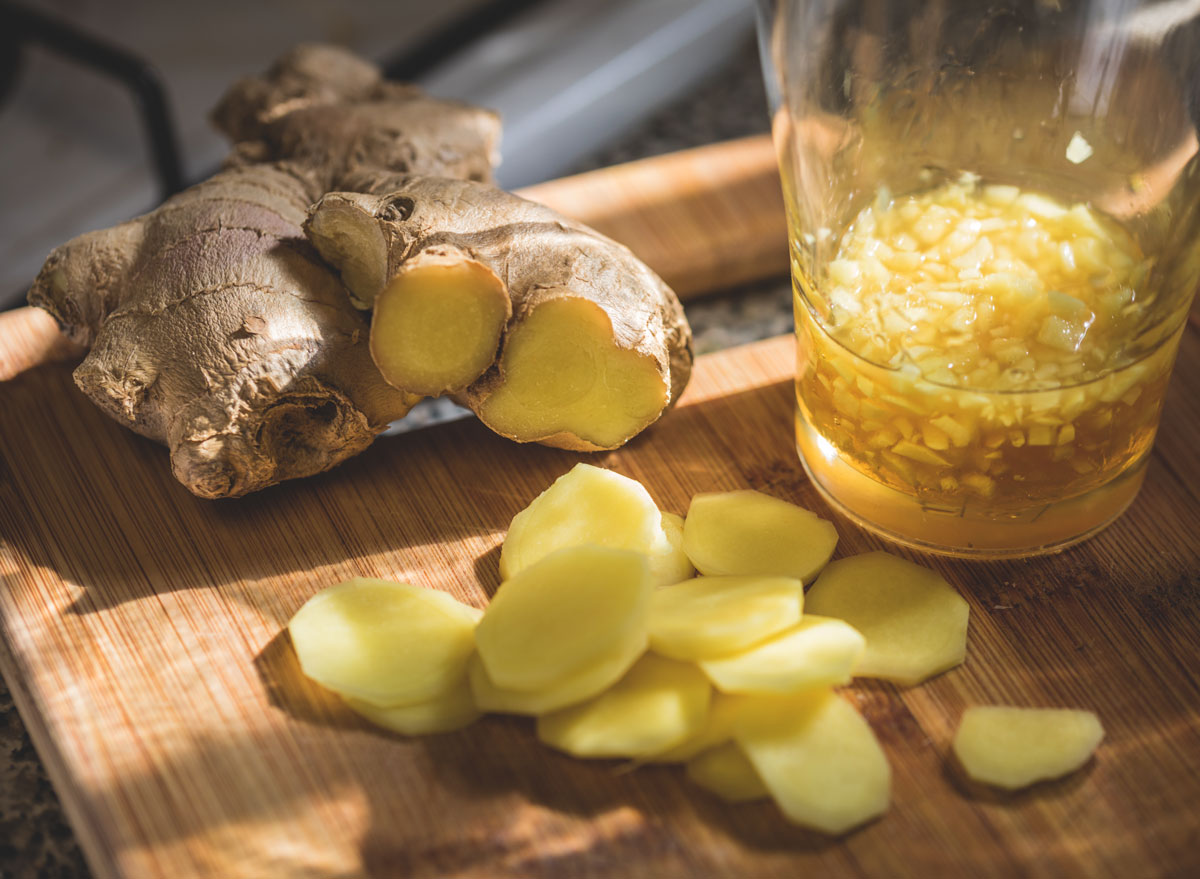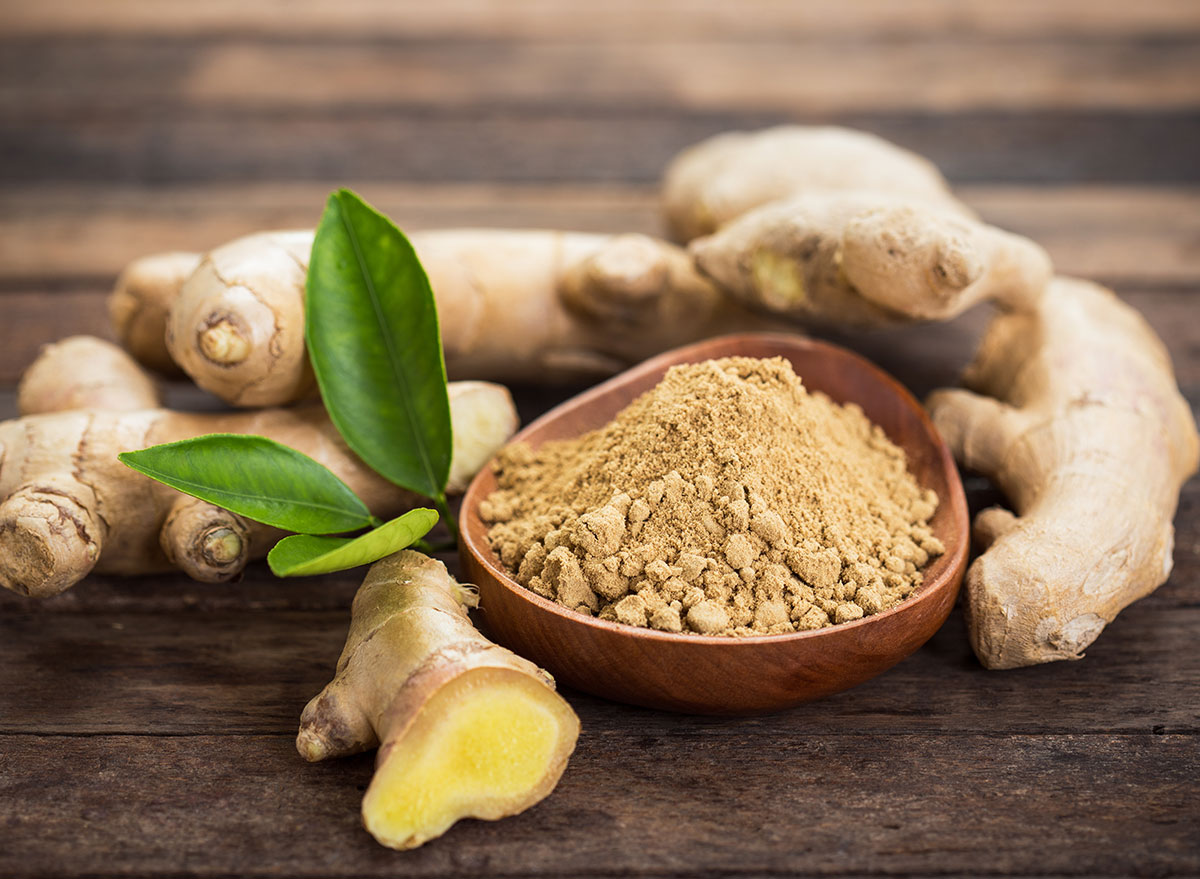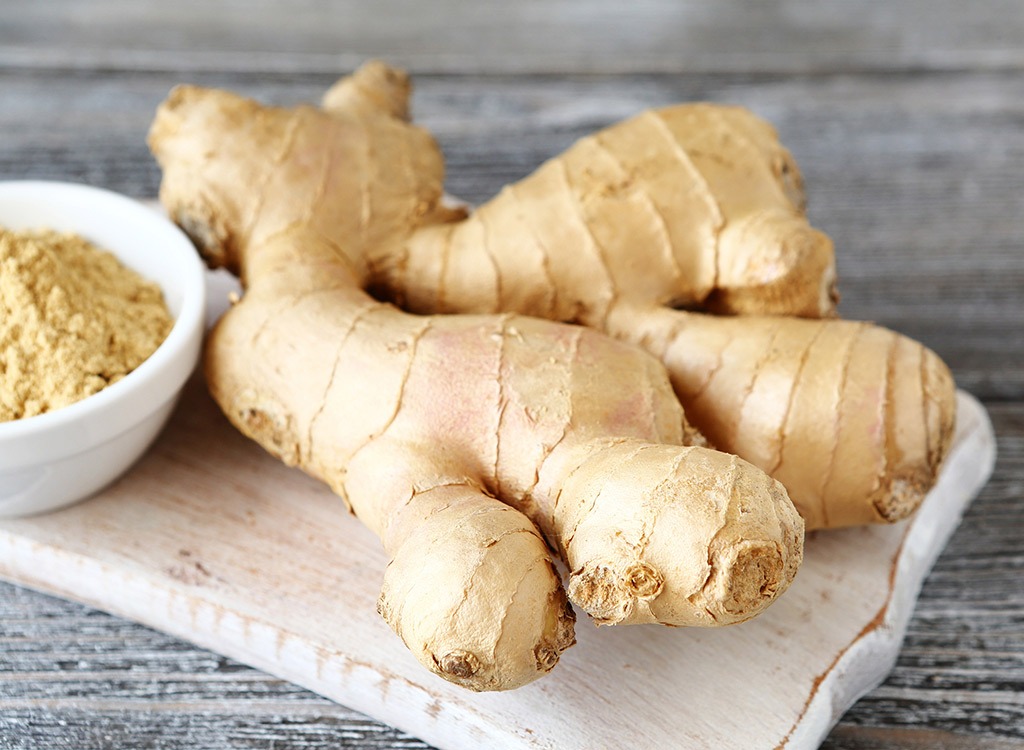What Happens to Your Body When You Eat Ginger

If you’re a fan of food from China, Thailand, and other Asia areas, you’re likely familiar with the distinct taste of ginger. As the main ingredient in soups, stews, meat marinades, and side dishes, this tiny yellow flowering plant has long been used to improve dishes’ health component. And, for hundreds of years, it’s been used as a healing agent in folk medicine. Here, we explore what actually happens to your body when you eat ginger or even drink it in tea! And for even more healthy tips, be sure to check out our list of The 7 Healthiest Foods to Eat Right Now.
You reduce inflammation and pain.

Knowing for its healing benefits, ginger is a potent anti-inflammatory plant root that’s been trusted for hundreds of years. As Lulu Ge, the founder of Elix, an herbal medicine company, explains, it’s been used to help with muscle soreness and other issues. So if something feels off in your body, it could be worthwhile to experiment with ginger.
“Whether consumed as a tea, a potent tincture, or as an ingredient in recipes, ginger lowers the level of prostaglandins in the body, resulting in inflammation relief,” Ge says.
You may also want to read up on our list of 30 Best Anti-Inflammatory Foods.
You may lose weight.

If you are on a quest to lose some weight, consider adapting a ginger practice. How come? Weight loss coach Stephanie Mansour says studies have illustrated ginger’s ability to reduce body weight, as well as insulin levels. Her best recommendation for those who might not enjoy the intense flavor is to mix freshly grated ginger into a smoothie. Or, you can also take a supplement for a similar impact.
Get even more healthy tips straight to your inbox by signing up for our newsletter!
You can fight your period cramps.

Anyone who has uncomfortable and debilitating menstrual cramps can relieve these symptoms is worth a try. And Ginger, Ge says, is an effective solution.
“Ginger can be beneficial for easing menstrual cramps when taken near the beginning of your period, and its effects are amplified when combined synergistically with other adaptogens and herbs,” she says.
You improve your digestive system.

According to Ge, though it’s small, ginger is mighty and contains compounds that stimulate and improve digestion. In fact, it can help alleviate problematic symptoms of irritable bowel syndrome, dyspepsia, indigestion, and morning sickness.
“Thanks to its unique balance of natural oils, including gingerol, the most active compound found in ginger, you may notice a reduction in nausea and discomfort when consuming ginger,” she adds.
And make sure you steer clear of these Foods That Cause Bloating and Hurt Digestion.
You boost your immune system.

When you were sick as a child, did your mom pour you a cup of hot lemon tea with ginger? If so, she probably knew about the immune-boosting properties of this unique root. As Ge explains, ginger not only helps with the common cold, but it’s been shown to protect against cancer since it fights free radicals in our body.
“In its raw form, it is also known to help improve circulation and can help lower your cholesterol levels and risk for heart disease,” she adds.
You may release gas.

It may be smelly, but it’s doing its job—and that’s a good thing. Since trapped gas in our upper stomach is uncomfortable and can cause bloating, chewing on ginger or taking a ginger supplement can relieve the pressure. This is because ginger fastens how quickly your stomach is emptied, allowing you to digest your foods smoothly, Mansour says.
“Even if you don’t suffer from indigestion, ginger can still help keep you regular,” she adds.
For even more foods to help with gut discomfort, check out our list of 15 Best (and Instant) Anti-Bloating Foods.